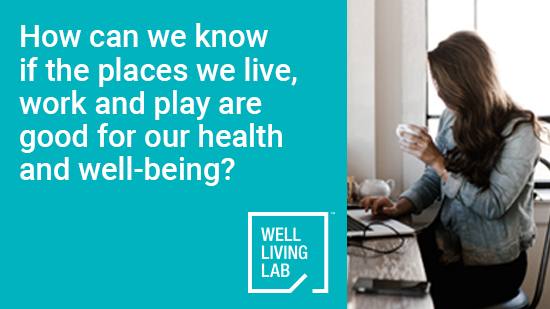-
Featured News
Well Living Lab study shows cognitive performance of office workers improves when windows provide access to daylight, view

ROCHESTER, Minn. — New research from the Well Living Lab, a Delos™ and Mayo Clinic collaboration, shows that office areas with windows, which provide people with natural light and views of the outdoors, improve workers' cognitive performance and satisfaction with their office environment. Modern shading and glass tinting techniques can mitigate eyestrain, reducing discomfort from daylight glare.
These findings are published in the November volume of Building and Environment. The study was conducted by researchers from the fields of environmental, health and behavioral science.
As part of the study, participants moved into in a simulated office setting matching their regular office cubicles. There, they went about their normal work activities for 14 weeks while environment and behavior were monitored. They brought their personal artifacts and work tools with them.
The simulated office space had east- and north-facing windows, and all participants sat an equal distance from the windows. Every two weeks, participants were exposed to a different window condition: mesh shades, dynamically tinted windows or blackout shades to remove daylight and view. The dynamic tinting windows used an algorithm to automatically adjust to darker tints in the mornings to prevent daylight glare and returned to a state that was not tinted by midday. Participants could adjust the mesh shade height and window tinting amounts to their preference. All other conditions, such as electric lighting, temperature, humidity and ventilation, were consistently maintained.
Three aspects of cognitive function were measured daily: working memory, inhibition and task switching. Eye health, including eyestrain, fatigue, irritability, focus and blurred vision, were evaluated by a questionnaire. The employees also reported their satisfaction with their office environment, such as their reactions to the workspace overall, and lighting for computer- and paper-based work.
Cognitive function improved when participants had access to daylight and view in their office area. Specifically, their ability to hold and manipulate items in memory and their ability to inhibit responses increased. Task switching was not affected by the various study conditions. Both the mesh shading and dynamic tinting resulted in the same degree of improved cognitive performance, compared to blackout conditions. Eyestrain also lessened when employees had access to daylight and view from the windows, with no difference between the two types of shading. Environmental satisfaction also improved with window access.
When the workspace had the windows blacked out, the No. 1 change that employees wanted was window access. When they experienced mesh shades and dynamic tinting, their top desired improvement varied from noise to temperature to privacy.
"We've added to the growing evidence that the ability to see the outdoors has a positive impact," says Brent Bauer, M.D., medical director of the Well Living Lab and principal investigator on the study for Mayo Clinic. "Other studies have shown access to daylight and views reduces stress, improves mood and lowers absenteeism from work — and even that employees make fewer mistakes. Additional studies can build upon these findings to help complete the picture that is emerging: that windows are good for us."
The Well Living Lab recognizes that not everyone with an office job can have access to daylight and views, and offers these tips:
- Bring nature inside, such as plants or a water feature. Decorate with nature scenes, such as photos and paintings, screen savers and cutouts from magazines.
- Use natural elements in the design of the workspace, including wood and stone.
- Listen to nature recordings on your headset or stream videos showing woods, lakes, flowers or other elements of nature that you find enjoyable.
- Use breaks to walk outside.
###
About the Well Living Lab
The Well Living Lab, a collaboration of Delos™ and Mayo Clinic, is dedicated to identifying how indoor environments affect human health and well-being. It conducts scientific research with human subjects in a simulated real-world environment and shares practical findings that can be applied to improving indoor spaces where people spent approximately 90% of their time. The lab has 5,500 square feet of sensor-rich, reconfigurable space in downtown Rochester. Learn more.
About Delos™
Delos is a wellness real estate and technology company guided by the mission to be the world’s leading catalyst for improving the health and well-being of people around the world by improving the indoor environments where they live, work, sleep and play. Informed by more than seven years of research and rigorous analysis of environmental health impacts on people, Delos and its subsidiaries offer an array of evidence-based technology and solutions for residential and commercial spaces.
About Mayo Clinic
Mayo Clinic is a nonprofit organization committed to innovation in clinical practice, education and research, and providing compassion, expertise and answers to everyone who needs healing. Visit the Mayo Clinic News Network for additional Mayo Clinic news and An Inside Look at Mayo Clinic for more information about Mayo.
Media contact:
- Suzanne Leaf-Brock, Mayo Clinic Public Affairs, 507-284-5005, newsbureau@mayo.edu







